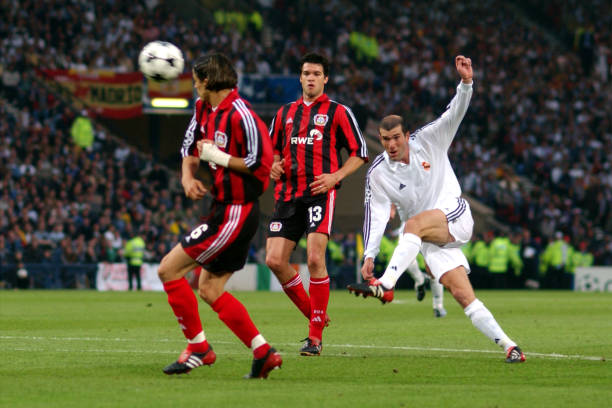Soccer is played at many different levels. From soccer academies to amateur and professional levels, soccer teams are not all ranked equal.
By certain metrics, some teams are ranked higher or lower than others.
Not all teams are considered eligible to partake in certain competitions.
For instance, almost all national teams may be eligible to participate in the FIFA World Cup, but not all would qualify, as teams have to engage in qualifying matches, wherein some teams will be eliminated.
The teams that emerge victorious in the qualification rounds would then be able to participate in the world cup finals.
When it comes to domestic leagues, there are hierarchies based on the soccer pyramid.
The team’s current placement or rank in the pyramid determines the eligibility to participate at any level of the soccer pyramid.
There are many ranking metrics used in soccer.
These rankings are used to determine team placements across the various divisions of football in the country.
The Football Pyramid
Most countries have their domestic leagues. These leagues are competed in by various teams vying for the league title.
Teams across various divisions have to play each other throughout the active football season.
These matches are often played at home and away.
In the U.S, for instance, there are various tiers of soccer in the American soccer pyramid, which are split into three divisions.
- Major League Soccer (MLS)
- USL Championship (USLC) and USL League One (USL1)
- National Independent Soccer Association (NISA) and MLS Next Pro (MLSNP)
Teams across the various leagues in Europe also play in different divisions.
In English domestic football, the apex division is called The Premier League. There are many other lower divisions ranging from professional to amateur levels.
While in Spain, the number one tier is the La Liga Santander.
In Italy, the top division is the Serie A; in France, it is the Ligue one; and in Germany, the paramount division is the Bundesliga.
What is relegation in soccer?
Relegation is simply the transfer of teams from a higher division to a lower division if they finish at the bottom of the league or fail to meet certain qualification standards.
The opposite of this is “promotion,” wherein teams that finish top of lower divisions will be promoted to higher divisions.
Leagues that employ the system of promotion and relegation are called “open leagues.”
In the U.S.A, teams, and leagues are not linked by the promotion and relegation system.
The league is overseen by the country’s top soccer governing body, the United States Soccer Federation (USSF).
This governing body is responsible for sanctioning professional leagues.
The leagues themselves are tasked with the admission and administration of individual teams.
However, in most leagues in Europe, South America, Africa, and Asia, teams may be promoted or relegated depending on where they finish in their various leagues.
How does relegation work?
A specific number of teams are registered in a particular division. These teams play against each other in various fixtures across the season. Teams play matches in the home stadium and away.
Teams across these various divisions amass points that determine their position in the league.
Teams are usually awarded three (3) points for a win, one(1) point for a draw and zero (0) points for a loss.
At the end of the soccer season, the team with the most points would be crowned as champions of the league. While the teams at the bottom may be relegated.
In the English Premier League, for instance, the bottom three teams are relegated to the Championships.
While teams that finish at the bottom of the championship are relegated to League one, teams finishing at the bottom of League One are relegated to League 2, and so on.
Teams that drop to lower divisions would have to play the new season in the lower division.
Teams may gain promotion back to the higher leagues if they are able to finish at the top.
However, in Europe, winners of the apex competition are crowned as title holders, and the top four teams qualify for the next season’s Champions League football. While teams that finish in 5th and 6th qualify for the Europa League.
Many other factors may contribute to teams being relegated or promoted.
In cases of misdemeanors, points may be deducted from a team’s overall point tally.
This can lead to teams being unable to accumulate enough points and may end up relegated.
Frequently Asked Questions About Relegation In Soccer
Why promotion and relegation in soccer are important?
One of the main reasons why relegation is good is that it gives teams the motivation to win games.
Thereby making the league competitive, exciting and unpredictable.
It also gives them the incentive to acquire top soccer talents for their club, thus making the league attractive.
It also gives fans more reasons to be passionate about the league or club.

How many teams can be relegated?
The number of teams that play in a particular division varies across different leagues and divisions.
Likewise, the number of teams that can be relegated also varies across different leagues and divisions.
In the English Premier League, which is the top division in the English soccer pyramid, the three (3) bottom teams are relegated to the championship.
Twenty (20) teams take part in the English Premier League. The three teams that finish with the lowest points are relegated.
The same rules apply in the Spanish La Liga, Italian Serie A, Bundesliga, French Ligue, and many other leagues.
Teams that play in the lower division may also be promoted via playoffs.
What happens when bottom teams in a soccer league are tied on points?
Many other metrics are used to determine the position of teams in the division.
Besides points, teams are also ranked according to goal differences, numbers of goals scored, numbers of goals conceded, head-to-head records, and fair play records.
When teams are tied on points, the other metrics will be the deciding factors.
These metrics have a certain order of importance.
For instance, in the EPL, the next metric considered after the point tally is the goal difference, and after that number of goals scored and the number of goals conceded.
In the Spanish La Liga head-to-head, records are considered above goal differences.
Which soccer teams have never been relegated?
In the English Premier League, Manchester United, Arsenal, Tottenham, Liverpool, Everton, Brighton, and Chelsea have never been relegated.
While Barcelona, Real Madrid, and Athletic Bilbao have never been relegated from the Spanish La Liga. You can read our article on some European soccer clubs that have never been relegated.
Why do soccer teams avoid relegation?
Apart from leaving the top soccer division, soccer teams have many other reasons to dread being relegated.
Relegations can have a negative impact on teams in so many ways, such as a lesser viewership to less inflow of money.
Lower divisions often do not attract as much viewership as higher divisions, which consequently means that lower divisions generate less money.
Most top players play in the higher divisions. Also, most International fans only support elite teams that play in top divisions.
How long does relegation last?
After a soccer team is relegated, they are to spend one year competing in the lower leagues.
Within that period, they can fight to gain promotion back to the main league. If they are not able to do so, they will try again the following year m, and so on.
For example, newly-promoted EPL side Nottingham Forest Forest were relegated from the English Premier League in 1999 but returned to the Premier League for the first time in 23 years.
What are the consequences of relegation for a team?
The consequences of relegation can be significant. Relegated teams often face financial losses due to lower television revenue, reduced matchday income, and the potential loss of sponsorship deals.
There may also be an exodus of top players looking to continue playing in a higher division, and the overall prestige of the club can suffer.
Can a relegated team return to their previous division?
Yes, a relegated team can return to their previous division by finishing near the top of the standings in the lower division the following season.
This is known as promotion, and it allows teams to climb back up the league hierarchy based on their performance.
Are there any leagues without relegation?
Of course, some leagues operate without relegation, such as Major League Soccer (MLS) in the United States and Canada.
These leagues use a franchise system where teams are stable members of the league without the risk of being relegated to a lower division.
How does relegation affect player contracts?
Relegation can have a significant impact on player contracts. Many contracts include relegation clauses that may reduce a player’s wages if the team drops to a lower division.
To add to that, players may have clauses that allow them to leave if the team is relegated, either on a free transfer or for a reduced fee, as the team might need to adjust to a lower budget and player may seek to maintain top-flight status.
What is a relegation battle in soccer?
A relegation battle in soccer refers to the intense competition between teams that are close to the bottom of the league table towards the end of the season.
These teams are fighting to avoid the drop to a lower division of their soccer league. It often involves several clubs within a few points of each other, and the outcomes of their final matches are critical








Interesting blog post! I’m not sure if I completely understand what relegation means in soccer, but I’m definitely interested in learning more. Thanks for writing!
Great blog post! I had no idea relegation in soccer was such a big deal. It’s fascinating to learn about the history and logistics of it all. As a casual soccer fan, it’s helpful to understand the implications of relegation and how it can impact teams and players. Thanks for shedding light on this topic!
I completely agree! Relegation is a fascinating aspect of soccer, and it’s amazing how much it can impact a team’s season. The pressure to avoid relegation can be intense, and it’s incredible how a team can go from being top of the league to fighting against relegation in just a few months. Great post!